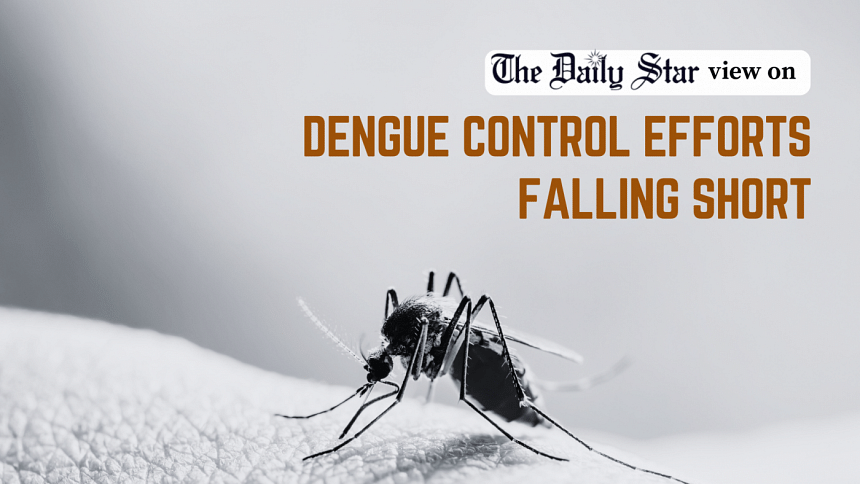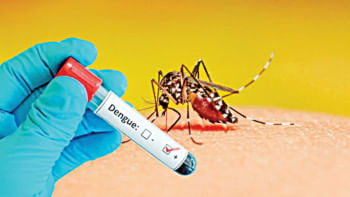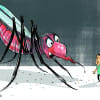We must improve dengue management

The dengue situation in Bangladesh remains alarming, with multiple cases still being reported in late December. As of Thursday, 100,558 people were hospitalised due to dengue this year, including 9,089 in December alone. While the record-breaking 1,705 deaths of 2023 were not repeated, the 565 deaths recorded this year represent the second-highest toll in recent years. Also, the decline usually seen in winter cases has not occurred this year, with at least one death reported on all but two days this month, underscoring the gravity of the situation. Unfortunately, the government's response continues to be inadequate in addressing this crisis.
Despite repeated calls for action, its dengue management efforts have fallen short. Regular mosquito control drives in Dhaka and other cities were poorly conducted, and no effective hotspot management measures were implemented. Meanwhile, hospitals outside Dhaka, ill-equipped to handle critical dengue cases, were overwhelmed. Experts have also raised concerns about the ineffectiveness of the pesticides used.
Understandably, the government's mosquito control drives were disrupted by the political transition in August. After the removal of elected ward councillors on September 26, regional executive officers took over their duties, but the momentum needed to combat dengue was lost. Ward councillor offices, which traditionally manage mosquito control among other services, became largely inactive during this crucial period. So to tackle dengue more effectively next year, the government must focus on strengthening city corporations and ward councillor offices. In this regard, Bangladesh can draw valuable lessons from Kolkata's successful dengue management model.
Reportedly, the Kolkata Municipal Corporation (KMC) runs a robust, year-round vector control programme across its 144 wards and 16 boroughs. Their approach integrates expert management, including entomologists, with ground-level implementation by Rapid Action Teams (RATs) and field workers. These teams proactively monitor and eliminate mosquito breeding sites while conducting awareness campaigns. KMC uses a ward-based database to identify high-risk areas, and when a dengue case is reported, RATs respond swiftly by inspecting and clearing breeding sites in the patient's home and 50 surrounding houses within 24 hours, extending the search to another 50 houses later. Data from diagnostic centres is also promptly utilised for targeted action.
Bangladesh must adopt similar measures to curb dengue. Declaring dengue a reportable disease from January 2025, combined with proactive surveillance, hotspot management and community awareness, can significantly reduce the spread of the disease and save lives.


 For all latest news, follow The Daily Star's Google News channel.
For all latest news, follow The Daily Star's Google News channel. 










Comments